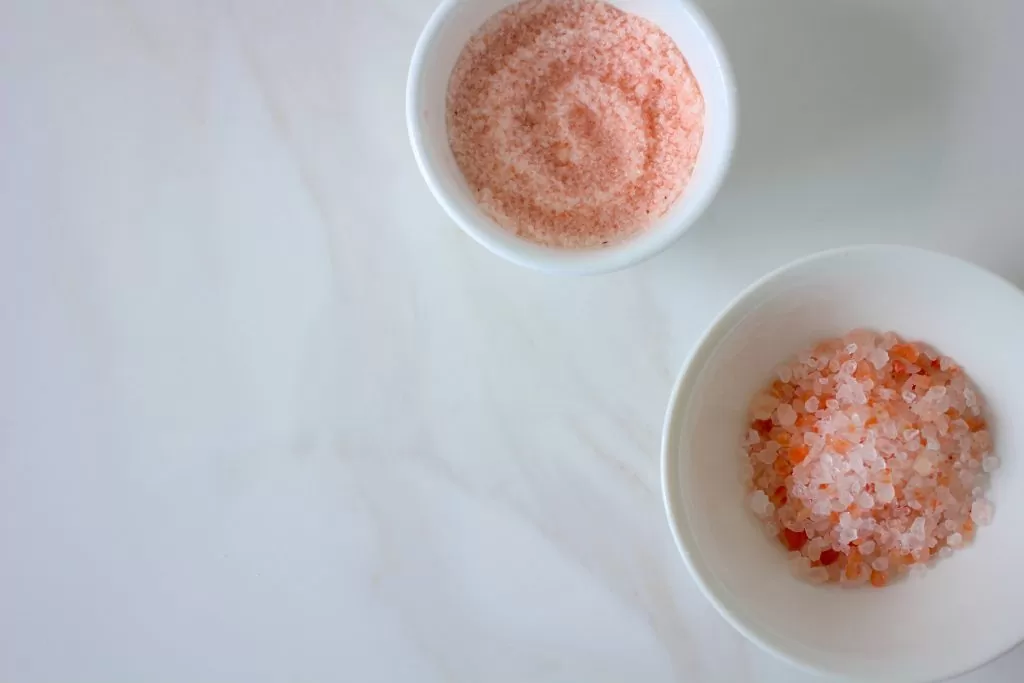Most people do not think twice about the salt they add to their food. It is an essential ingredient in cooking that helps to enhance flavor and preserve food. But did you know that not all salt is created equal? Rock salt, or halite, is a type of salt that is mined from the earth. It is unrefined and contains a high mineral content, making it a healthier option than refined table salt.
What is Rock Salt?
Rock salt is a type of salt that is found in rocks. It is used in many different ways, including as a food seasoning, a Vastu remedy, and Ayurvedic medicine. Rock salt has many benefits for our health. It can help improve digestion, relieve tension headaches, and reduce inflammation. It is also effective in treating colds and flu. In addition to its health benefits, rock salt can also be used for its beauty benefits. It can help exfoliate the skin, remove dead skin cells, and give the skin a natural glow.
So, if you are looking for a healthy and natural way to improve your health and beauty, then consider using rock salt in all your meals. Rock Salt has many benefits, including improving digestion, helping with weight loss, and preventing muscle cramps. Including rock salt in your diet is an easy way to improve your health.
Here are some tips on how to do so:
- Add rock salt to your cooking.
- Use rock salt in place of table salt.
- Add rock salt to your bath water for a relaxing soak.
- Make a Rock Salt scrub to exfoliate your skin.
- Drink water infused with rock salt to detoxify your body. Follow these tips and start reaping the benefits of rock salt today!
Nutritional Value of Rock Salt
Rock salt is a mineral that is commonly used as a seasoning or preservative. It is high in sodium and chloride, which makes it an effective electrolyte. Rock salt also contains trace minerals such as calcium, magnesium, and potassium. These minerals are important for human health and can be found in many foods we eat.
The majority of the sodium in our diet comes from rock salt. It is estimated that approximately 75% of the sodium we consume comes from processed foods that contain rock salt. This is why it is important to be aware of the sodium content in your diet and to limit your intake of rock salt if you are trying to reduce your sodium intake.
One teaspoon of rock salt contains about 2,300 mg of sodium. The recommended daily intake of sodium for adults is 2,300 mg per day. This means that just one teaspoon of rock salt could provide you with the recommended daily amount of sodium. However, it is important to note that this does not mean that you should consume this much rock salt every day. You should still limit your intake of processed foods that contain high amounts of rock salt and other unhealthy ingredients.
Health Benefits of Rock Salt
Rock salt is a type of unrefined salt that is found in nature. It is not processed like table salt and therefore contains trace minerals that are beneficial to our health. Some of the health benefits of rock salt include:
- Rock salt helps to regulate blood pressure and fluid levels in the body.
- It is a natural detoxifier and can help to cleanse the digestive system.
- Rock salt aids in weight loss by stimulating the metabolism.
- It helps to improve circulation and reduce inflammation.
- Rock salt is a good source of minerals such as potassium, magnesium, and calcium which are essential for our health.
Uses of Rock Salt
Rock salt is a type of unrefined salt that is minimally processed. It is also known as halite or rock mineral salt. Rock salt has many uses, including in cooking, as a food preservative, and for ice cream making.
One of the most popular uses for rock salt is in cooking. It can be used to add flavor to food or to make it less salty. Rock salt can also be used as a food preservative. When added to food, it helps to keep the food fresh and prevents it from going bad. Rock salt can also be used for making ice cream. When added to ice cream, it helps to prevent the ice cream from melting and keeps it scoopable.
How to Include Rock Salt in Your Diet
Rock salt is a type of salt that is rich in minerals. It is often used in Ayurvedic medicine and is believed to have many health benefits. Some of these benefits include:
1. Aides in Digestion:
Rock salt helps to stimulate the production of hydrochloric acid in the stomach, which is necessary for proper digestion.
2. Detoxifies The Body:
The minerals in rock salt help to remove toxins from the body and promote healthy cell function.
3. Prevents Muscle Cramps:
The magnesium and potassium present in rock salt help to prevent muscle cramps and spasms.
4. Relieves Respiratory Problems:
The minerals present in rock salt can help to clear congestion and reduce inflammation in the respiratory system.
To include rock salt in your diet, simply add a pinch or two to your meals as desired. You can also use it as a seasoning for cooked foods or add it to soups or stews. Start with a small amount and increase as needed to reach your desired flavor.
Rock Salt Benefits
- Rock salt is a great source of minerals, including iodine, which is essential for proper thyroid function.
- It can help to regulate blood pressure and improve circulation.
- Rock salt can aid in digestion and help to relieve constipation.
- It can also help to detoxify the body and promote healthy skin.
- Finally, rock salt can boost your energy levels and mood.
Rock Salt Benefits for Skin
There are many benefits to using rock salt for your skin. This type of salt is known to help improve circulation, detoxify the skin, and improve the appearance of cellulite. Rock salt can also help to exfoliate the skin, making it look and feel softer and smoother. It is also said to help with acne by reducing inflammation and killing bacteria.
Side Effects
Rock salt is a natural and unrefined product that is full of minerals. It can be used in cooking to add flavor or as a seasoning. Rock salt also has many health benefits, including aiding digestion, balancing electrolytes, and helping to detoxify the body. However, like all things, there can be some side effects associated with consuming rock salt. Here are a few to be aware of:
-Dehydration:
Because rock salt is full of minerals, it can actually pull water from the body if consumed in large quantities. This can lead to dehydration and even electrolyte imbalance. Be sure to drink plenty of fluids when consuming rock salt, especially if you are sweating or working out.
-Digestive Issues:
If you have digestive issues like Crohn’s disease or ulcerative colitis, consuming rock salt can make them worse. The high mineral content can irritate the digestive tract and cause inflammation. If you have any digestive issues, speak with your doctor before including rock salt in your diet.
-High Blood Pressure:
The sodium content in rock salt can cause problems for those with high blood pressure or other cardiovascular issues. If you have any concerns about your sodium intake, speak with your doctor before using rock salt.
Conclusion
Rock salt is an important ingredient that can help improve the taste of your food. It is also a healthy option that can help you get the nutrients your body needs. Including rock salt in all your meals is a simple way to make sure you are getting the most out of your diet.









